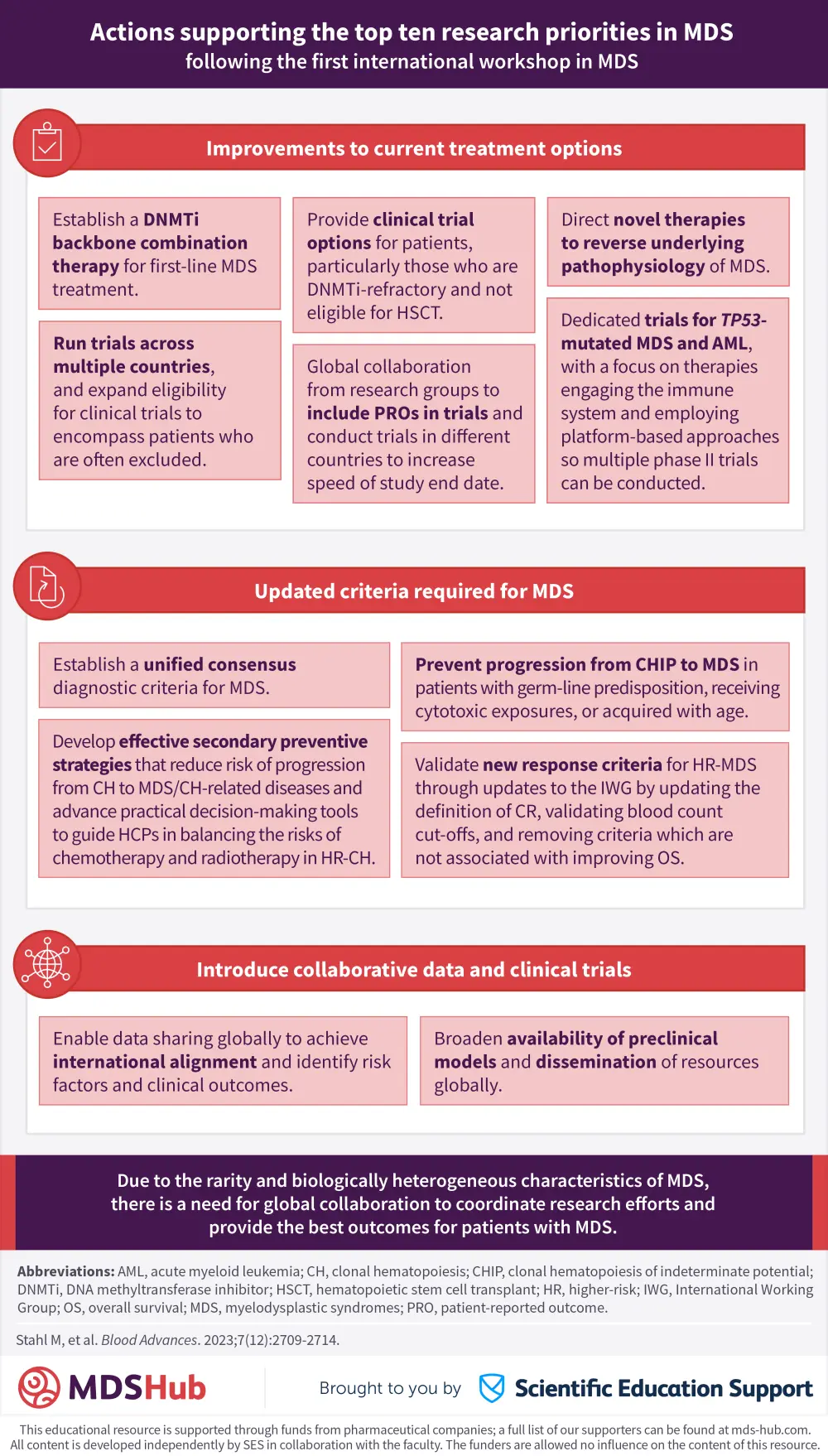All content on this site is intended for healthcare professionals only. By acknowledging this message and accessing the information on this website you are confirming that you are a Healthcare Professional. If you are a patient or carer, please visit the MDS Alliance.
The mds Hub website uses a third-party service provided by Google that dynamically translates web content. Translations are machine generated, so may not be an exact or complete translation, and the mds Hub cannot guarantee the accuracy of translated content. The mds and its employees will not be liable for any direct, indirect, or consequential damages (even if foreseeable) resulting from use of the Google Translate feature. For further support with Google Translate, visit Google Translate Help.
Now you can support HCPs in making informed decisions for their patients
Your contribution helps us continuously deliver expertly curated content to HCPs worldwide. You will also have the opportunity to make a content suggestion for consideration and receive updates on the impact contributions are making to our content.
Find out more
Create an account and access these new features:
Bookmark content to read later
Select your specific areas of interest
View MDS content recommended for you
Visual Abstract | Priority agenda to advance research in MDS: the first international workshop in MDS
The MDS Hub is pleased to present a visual abstract summarizing the top 10 priorities from the first international workshop in myelodysplastic syndromes (iwMDS), held in Florida, US, in June 2022.
Given the molecular, biological, and clinical heterogeneity of MDS, conducting translational research is challenging, and treatment often involves a complex variety of therapeutic approaches. During this first international workshop in MDS, participants concluded 10 critical needs for MDS globally and proposed specific measures to improve future research. Below, we summarize the proposed specific actions going forward from this meeting, followed by the top 10 research priorities these actions support (Table 1). These research priorities included making specific improvements to current treatment options, updating the criteria used for MDS, streamlining the differences between the International Consensus Classification and the 5th edition of the World Health Organization recommendations (previously covered by the MDS Hub), and enabling global collaborative data and clinical trials.

References
Please indicate your level of agreement with the following statements:
The content was clear and easy to understand
The content addressed the learning objectives
The content was relevant to my practice
I will change my clinical practice as a result of this content

